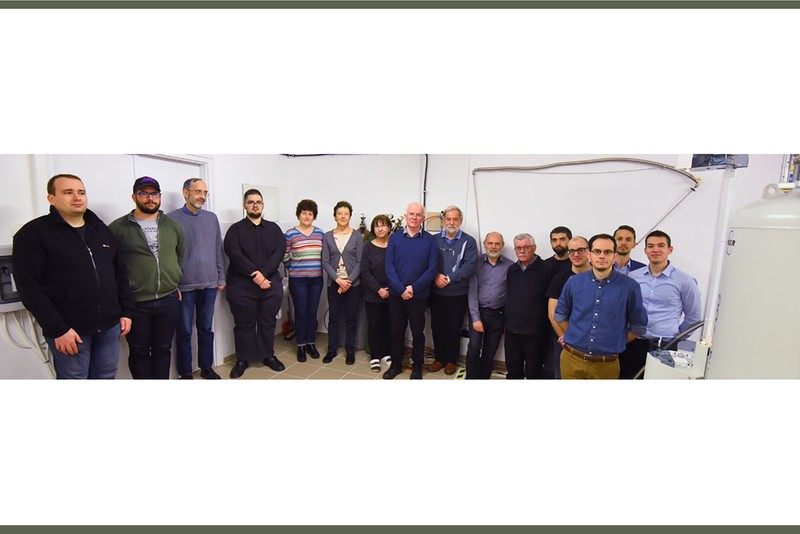The University of Debrecen won the HORIZON-INFRA-2021 tender as a member of a 26-member European consortium. The NMR Instrument Center of the Institute of Chemistry of the Faculty of Science and Technology is connected to an international network for solving material structure, chemical, and biological problems.
The winner of the HORIZON-INFRA-2021 tender, which aims to make the most of the very expensive NMR instrumentation infrastructure found in all countries of Europe, is the University of Debrecen, which is a member of a 26-member European consortium. The remote-NMR (R-NMR) project, coordinated by Johann Wolfgang Goethe University in Frankfurt and supporting the solution of urgent material structure, chemical, and biological problems, involves the nuclear magnetic resonance (NMR) laboratories of the Institute of Chemistry of the Faculty of Science and Technology.
The spectrometers can be controlled digitally, which allows remote operation. This option is already working within the city, but the aim of the project is to send a sample to Frankfurt, for example, if the Frankfurt instrument is more suitable for determining the structure of a complex protein than in Debrecen, even for days or weeks. over. This procedure is very advantageous in this pandemic period, as it eliminates the need for researchers to travel and reduces the cost of research – the members of the project’s governing body.
– professors Katalin Kövér and Gyula Batta, informed hirek.unideb.hu.
The general objectives of the R-NMR project are to establish standard Internet access protocols, to develop secure practices for the transport of scientific samples within Europe, to create Internet-based training programs for researchers to prepare for remote infrastructure operation and data analysis, and to store data and develop research protocols. development of common methods, description of methods, and results.
Professors from the Institute of Chemistry at the Faculty of Science and Technology explained that the DEBNMR group’s plans include: standardization of liquid and solid phase biomolecular and small molecule NMR experiments for remote users in European NMR infrastructures, development of safe and user-friendly protocols for NMR spectrometers remote access and control, as well as the management of NMR raw data and metadata, and the testing of protocols developed in the work program, including in facilities that were not involved in development activities.
hirek.unideb.hu


















